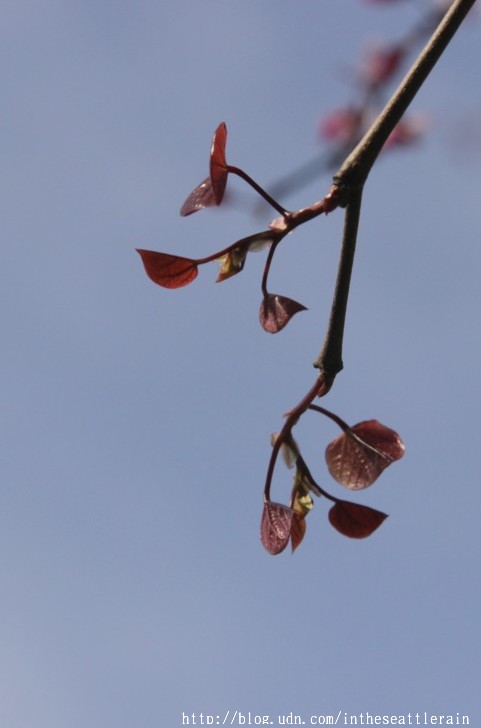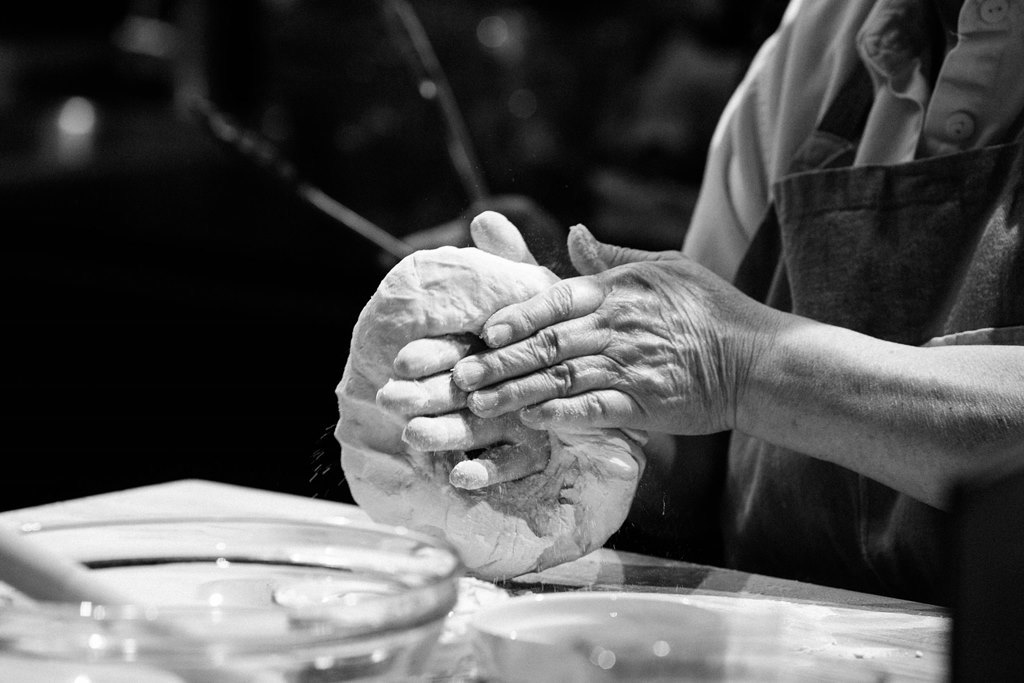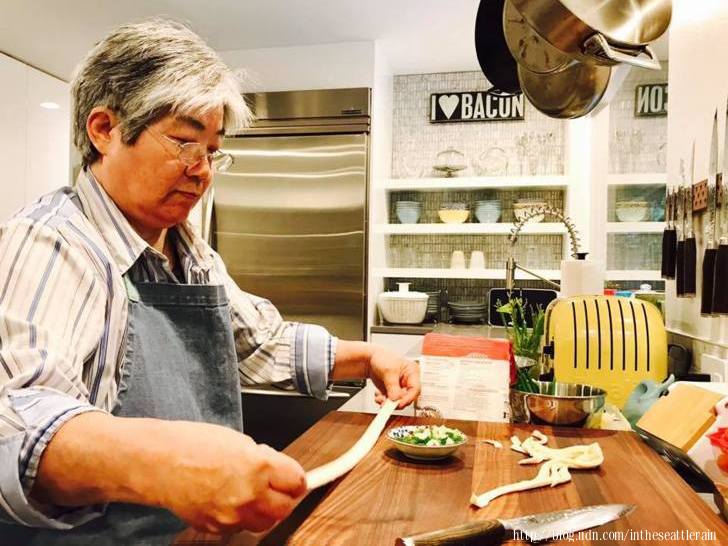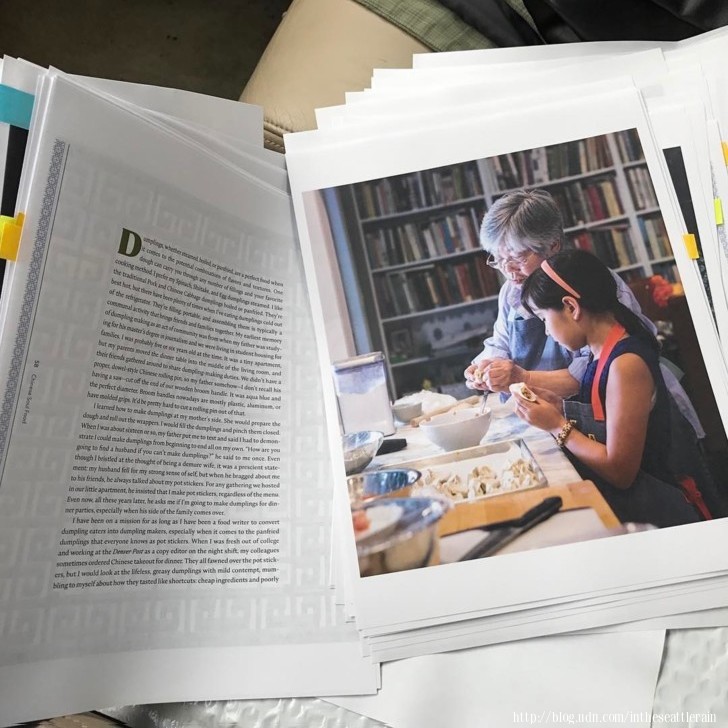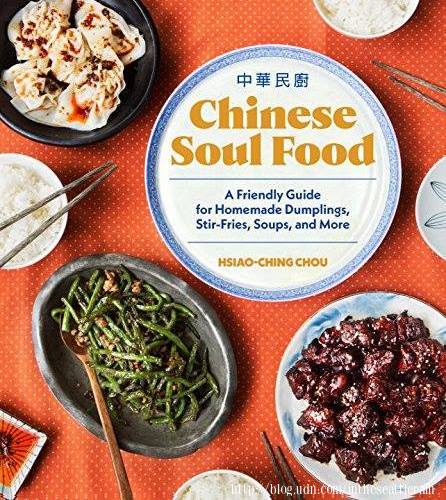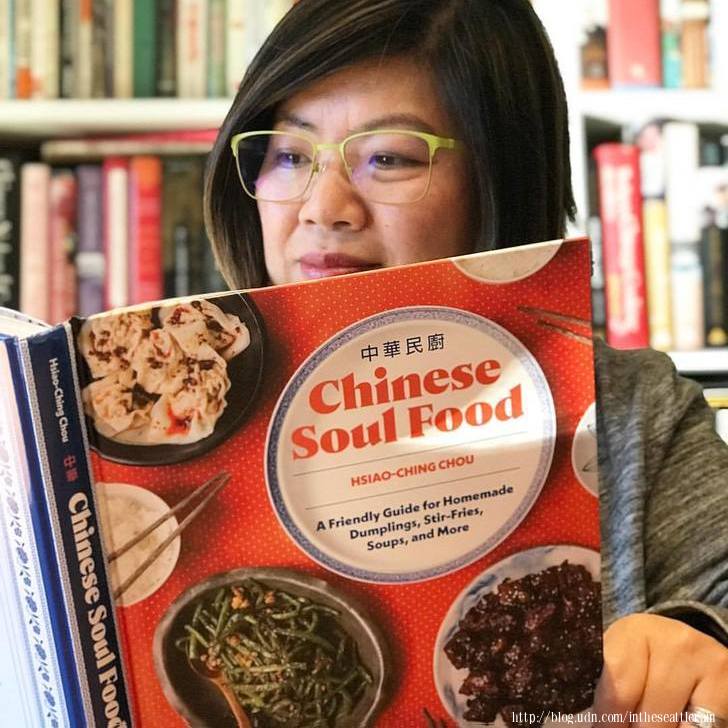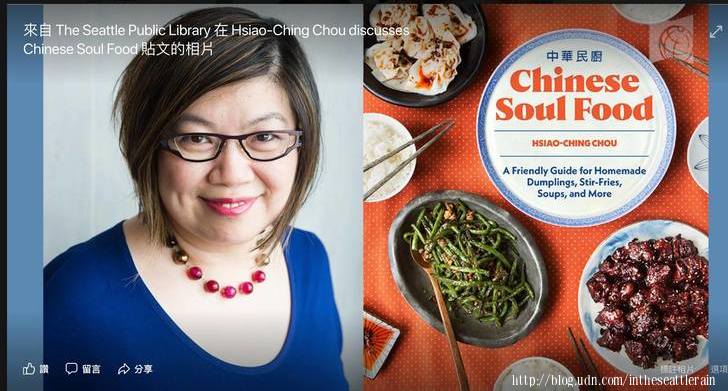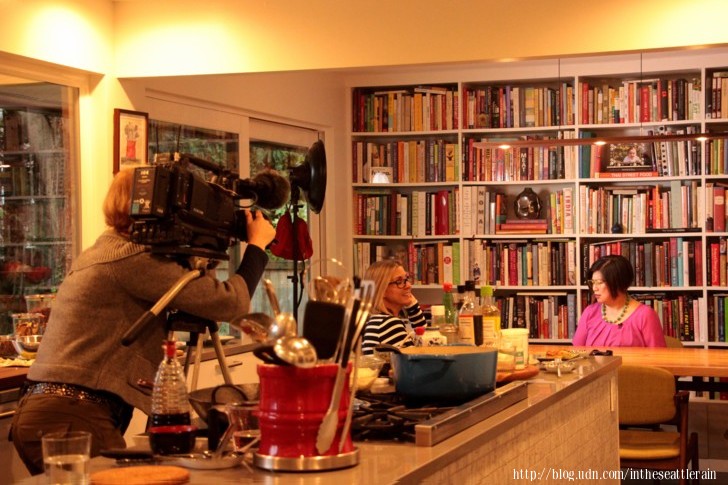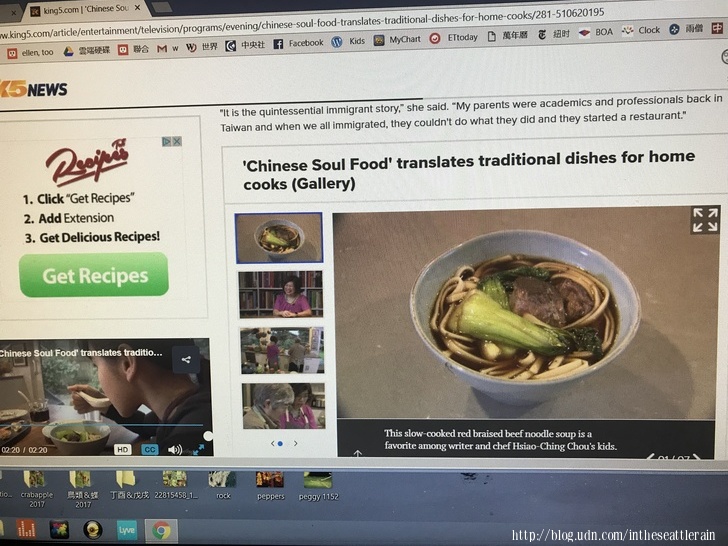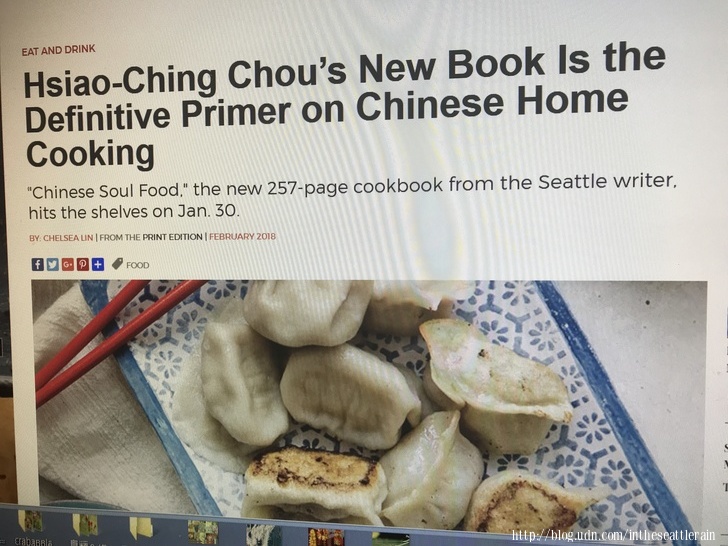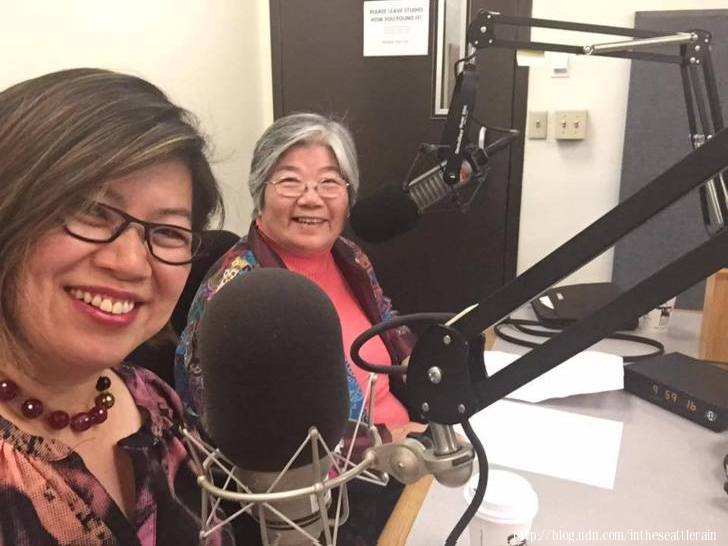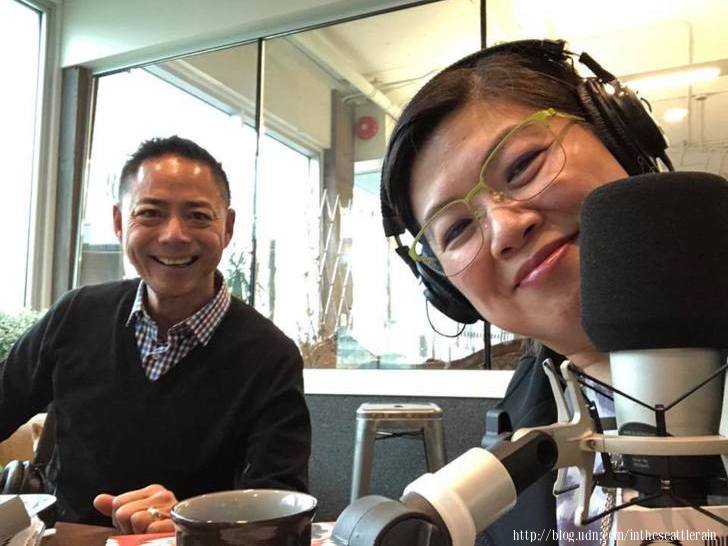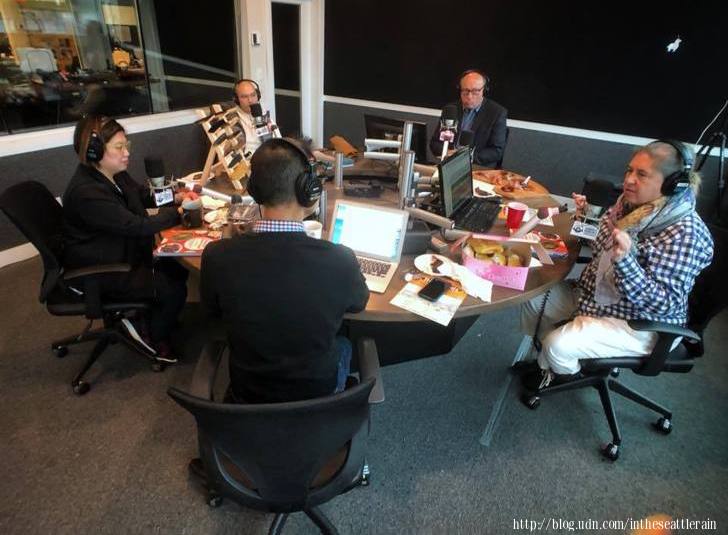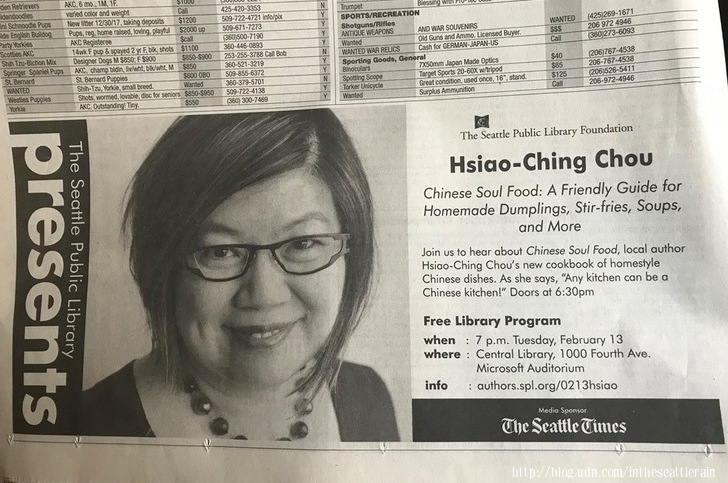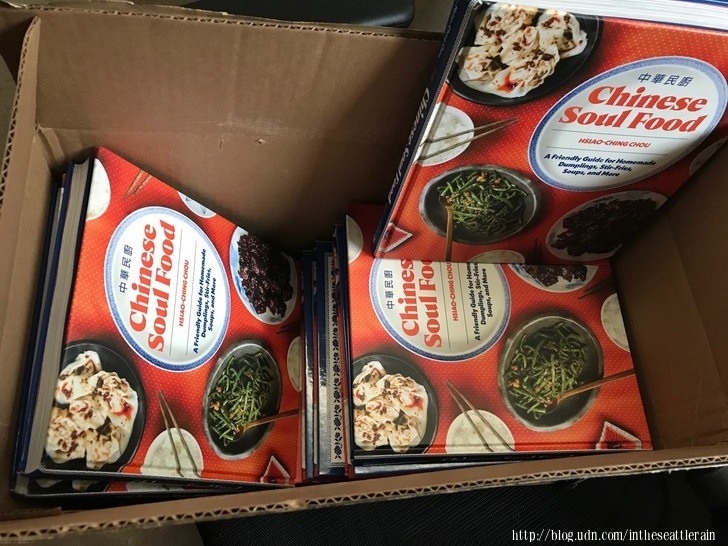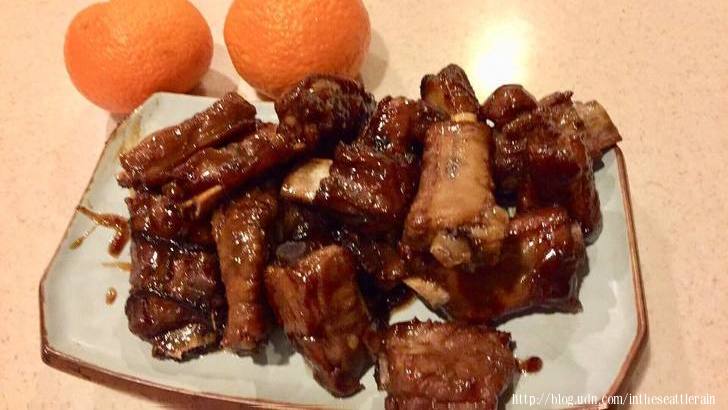

 字體:小 中 大
字體:小 中 大 |
|
|
|
| 2018/01/31 07:51:00瀏覽2594|回應22|推薦96 | |
|
女兒從新聞系畢業後﹐工作一直與新聞傳播有關。即使前六年在一個非營利的科研機構擔任傳播主任﹐也還是穿著白袍子與科學家為伍﹐將他們的研究項目與成果﹐用庶民語言發佈到社團網站與新聞媒體。 工作之外﹐她有美滿的家庭要照顧﹐由於我和女兒同住﹐她的兩個弟弟也常帶著孩子們來請安蹭飯。之前在報社工作時奠下美食寫作的基礎﹐近兩年受邀在烹飪教室授課﹐也使多年來寫書出版的願望得以實現。 還是2015年四月天﹐她與朋友談事﹐帶著我到咖啡館附近的綠湖(Green Lake)走春﹐我寫了一篇枯木又逢春﹐卻沒想到她趁業餘時間寫了一本書的計劃被出版社接受了。 從那時起﹐我們就當起白老鼠﹐因為家常吃飯都是信手拈來﹐寫食譜就得斤兩必較﹐甚至鍋中時間也得小心拿捏。 終於﹐今天收到預訂於今日出版的新書。 最讓我驕天下人的是﹐女兒竟邀我為此書作序﹐她的編輯還要求中英對照!
序愛女曉晴新書 周徐喚民 ~~深藏於心的家常料理
曉晴的書讓我聯想到中國俗語「小菜一碟」。它的英文巧對是「蛋糕一塊」!都是形容:在美式廚房做中國菜沒什麼難的。
一般華人家庭很少有人帶本食譜進廚房。除了年節,大多是有啥吃啥,隨遇而安。我沒有食譜,我母親也沒有。
有天,我第一次下廚給自己做了碗蝦仁蘿蔔絲米粉湯。那是因為媽不在家。通常廚房是我的禁地,我媽從小沒上過學常恨自己不識字,最大的願望就是我能接受完整的學校教育,不願我因為做飯耽誤功課。雖然我從來沒想過要做學問,卻為了母親跑到美國密蘇里掙了個碩士學位。
先父畢生軍旅,收入不豐。幸賴軍眷補給全家未受凍餓。我誕生於中日戰亂年代,童年生活乏善可陳,竟然找不到一張照片證明我曾存在。
也因此養成我隨緣豁達的性情,少期盼、多感恩。
完成母親最大的心願之後,我回國嫁給大學同班周長生。我們都有穩定職業和收入,小家庭添了女兒曉晴和大兒子士弘。當長生準備繼續進修時,我們帶著兩個孩子來到美國住進有眷學生公寓,接收了一些學長留下的鍋碗瓢盆,我才正式走進廚房。沒有炒鍋,先生鋸了ㄧ段掃把給我當擀麵棍。小兒子士毅在大學醫院誕生。
我依據的「食譜」是記憶中的美食,追尋的是深藏於心的味道。我常自哂為「印象派」。
直到開了第一家外賣餐館才買了一本食譜來印證一些細節問題。
曉晴在書中喚回許多家庭裡關於食的記憶,溫馨、美好,都與山珍海味無關。她解釋這本書的初衷就是由簡單著手,帶你走進廚房。因為一個溫暖的廚房才是家的心房。
下廚很簡單。我們是過來人。
For Hsiao-Ching’s Chinese Soul Food: Ogden Nash wrote this in Primrose Path in 1936: “Her picture’s in the papers now, and life’s a piece of cake.” While reading Hsiao-Ching’s book, I thought about the quote because her message, ultimately, is that cooking Chinese food in a Western kitchen is not as hard as it may seem. Most Chinese people go into their kitchens without ever consulting cookbook. I didn’t. My mother certainly didn’t. The very first dish ever cooked for myself was a bowl of rice noodle soup with daikon radish strips and a few pieces of dried shrimp for flavor. It was only because my mother was not home that day and I had to feed myself. The kitchen normally was off limits to me. The wok was there and the stove was there, but mother never let me to touch them. Her biggest regret was that her circumstances prevented her from attending school, so she her dream was for me to complete my formal education. She didn’t want me wasting my time in the kitchen. So, even though I had no ambition for becoming an academic, I reached graduate school and earned a master’s degree for her. My father was a military man with a limited income. Luckily, our family received a small stipend for military dependents that helped. I was born during the Sino-Japanese War and I didn’t even have a single photo to prove my existence. Thus, my character was built on the value of not asking for too much in life and appreciating whatever I may get. After I fulfilled my mother’s dream, I married a man I met in college. We both had steady jobs and fair incomes, so we started a family and had Hsiao-Ching first, then her brother, Shih-Hung. When my husband decided to pursue his master’s degree, we set forth on our future life in the United States. With my husband in school and two young children in tow, I eventually gave up my career as a journalist. That was when I started taking cooking more seriously. We were in a campus apartment with some hand-me-down cookware, but no wok. But I tried every way to feed my family, including making dumpling skins with a sawed-off broomstick as rolling pin. Our third child, David Jr., was born at University Hospital near campus. The only “cookbook” I always carried around was my memory of good eating. So I joked that I was an “impressionist” cook. It wasn’t until we opened a small carry-out restaurant that I even bought a Chinese cookbook to double check some details related to techniques. Hsiao-Ching explains that the purpose of this book is to encourage people to get into the kitchen and start cooking. That’s what we did, and so can you. I am mostly touched by the fond family memories she has brought back with her stories. A warm kitchen is the heart of the family. And that is sweeter than cake.
難忘的春日
慈母手中麵
攝影
書頁半成
封面及網路預約上路
第一本實體書寄到
出版日近﹐媒體關注
電視與報紙
雜誌
廣播電台
西雅圖大圖書館微軟講堂演講會
我為每個孫兒女訂購一本
北美世界日報華府特派員許惠敏參照食譜的作品
@@@@ |
|
| ( 創作|散文 ) |



